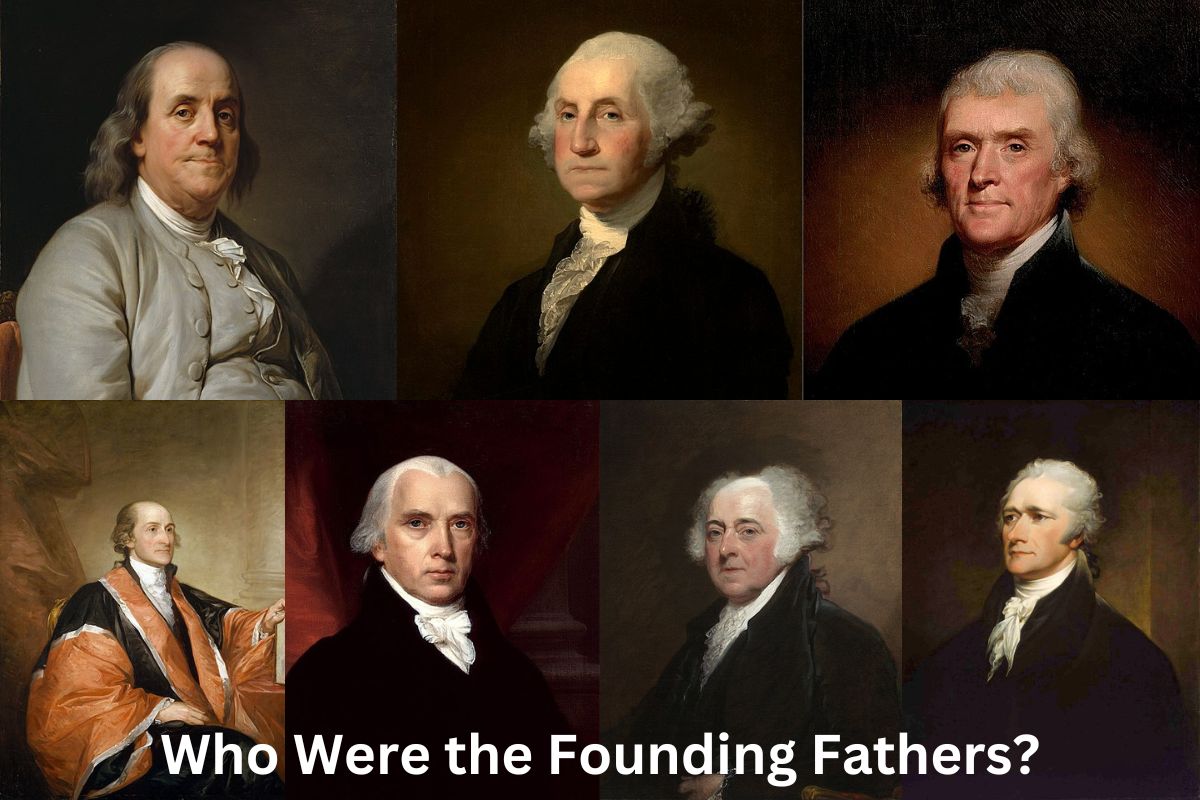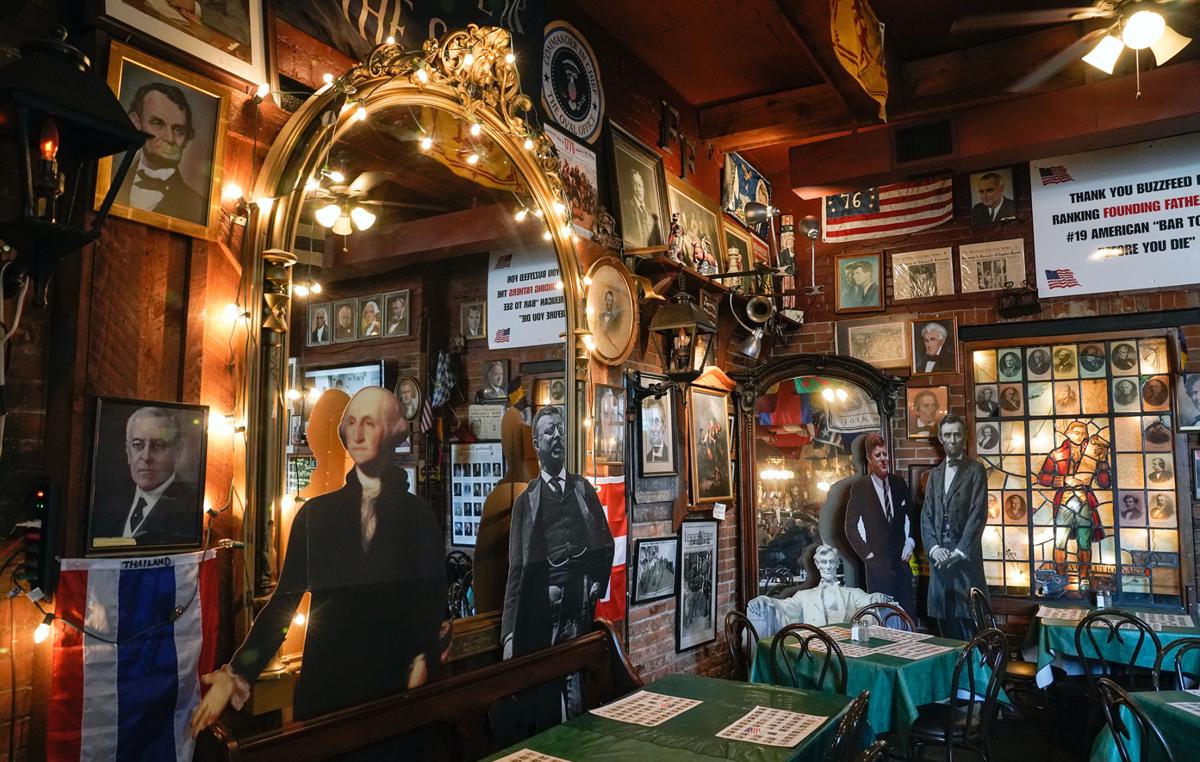The visionary leaders who shaped Buffalo’s history have left an indelible mark on the city’s identity. Their influence is still evident in the architecture, cultural vibrancy, and community spirit that define Buffalo, New York. This article delves into the lives of these remarkable figures, exploring their contributions to the city’s development and the lasting legacy they created. As we journey through this rich history, we’ll uncover fascinating stories and lesser-known details that make Buffalo’s story truly unique.
Buffalo emerged as a significant hub for commerce, transportation, and industry during the early 19th century. The foresight and perseverance of its founders laid the foundation for what would become one of the largest cities in New York State. This article will examine the key personalities, their backgrounds, and the pivotal moments that defined Buffalo's early years. By analyzing their impact, we aim to provide a comprehensive understanding of how these founding fathers shaped the city’s destiny.
Beyond celebrating their accomplishments, this exploration will also shed light on the challenges they faced. From economic struggles to political obstacles, their resilience in overcoming adversity exemplifies their unwavering commitment to Buffalo’s success. Join us as we embark on this fascinating journey to discover the individuals who built the foundation for a thriving urban center.
Read also:Elizabeth Olsen A Journey Through Her Talented Career
Contents Overview
- Lives and Contributions of Buffalo's Founding Figures
- Prominent Figures in Buffalo's Establishment
- Economic Foundations Established by the Founders
- Navigating Political Challenges and Triumphs
- Enhancing Community Growth and Development
- Preserving Cultural Heritage and Historical Sites
- Buffalo Today: A Testament to Its Founders
- Final Thoughts
Lives and Contributions of Buffalo's Founding Figures
The establishment of Buffalo owes much to several key individuals whose vision and determination shaped the city. Below are some of the most notable founding fathers:
| Name | Birth Year | Contribution |
|---|---|---|
| Joseph Ellicott | 1760 | Surveyor and planner of Buffalo |
| Skinner Turner | 1790 | Land developer and businessman |
| John D. Larkin | 1803 | Entrepreneur and industrialist |
| Edward K. Wilcox | 1815 | Influential in transportation development |
Prominent Figures in Buffalo's Establishment
Among the founding figures, Joseph Ellicott stands out as a pivotal character. As a surveyor, Ellicott meticulously designed the city’s layout to accommodate growth and facilitate trade. His strategic planning included wide streets and ample public spaces, laying the groundwork for Buffalo’s future expansion.
Skinner Turner played a crucial role in land development. By purchasing vast tracts of land and selling them to settlers and businesses, he fueled Buffalo’s population growth. Turner’s vision for a dynamic city attracted diverse groups, transforming Buffalo into a vibrant cultural melting pot.
Joseph Ellicott: The Master Planner of Buffalo
Joseph Ellicott's journey began in New York, where he developed expertise in surveying and land management. His skills were instrumental in Buffalo’s early development, as he not only designed the city’s physical layout but also positioned it as a key trade center. Ellicott’s contributions extended beyond infrastructure, influencing Buffalo’s economic trajectory and solidifying its importance in regional commerce.
Skinner Turner: The Strategic Developer
Skinner Turner, born in 1790, became a prominent figure in Buffalo’s early history. His ability to recognize the city’s potential as a commercial hub led him to invest heavily in land and infrastructure. Turner’s legacy is evident in Buffalo’s ongoing growth and diversification, reflecting his visionary approach to urban development.
Economic Foundations Established by the Founders
The founding fathers of Buffalo played a critical role in shaping the city’s economy during its formative years. Their efforts laid the groundwork for a thriving urban center characterized by industry and commerce.
Read also:Where Is Tia Hernlen Today Exploring Her Journey Of Resilience And Advocacy
- Establishment of transportation networks, including canals and railroads, which facilitated trade and connectivity.
- Promotion of Buffalo as a strategic trade center due to its advantageous location near the Great Lakes.
- Development of manufacturing industries that attracted workers and businesses, fueling economic growth.
Navigating Political Challenges and Triumphs
The early years of Buffalo were marked by significant political challenges. The founding fathers navigated a complex landscape of local and state politics, striving to create a stable governance structure for the burgeoning city.
Building a Local Government Framework
Establishing a local government was a major achievement for the founding fathers. They worked tirelessly to create a political framework that would support the city’s expansion and provide essential services to its residents. This structure ensured that Buffalo could grow sustainably and efficiently.
Advocacy for Infrastructure Advancements
The founding fathers championed infrastructure improvements, such as roads and public transportation systems. Their efforts in securing funding and support for these projects were instrumental in enabling Buffalo to flourish. These advancements not only enhanced connectivity but also improved the quality of life for its citizens.
Enhancing Community Growth and Development
Beyond their economic and political contributions, the founding fathers made significant strides in fostering community development. They understood the importance of building a cohesive and supportive community to sustain the city’s growth.
- Establishment of educational institutions to promote literacy and lifelong learning.
- Creation of public spaces for community gatherings and events, fostering a sense of unity and belonging.
- Encouragement of cultural and social organizations to celebrate diversity and strengthen community bonds.
Preserving Cultural Heritage and Historical Sites
The cultural legacy of Buffalo’s founding fathers is vividly reflected in its historical landmarks and cultural institutions. Many of these sites continue to stand as testaments to their vision and foresight.
Historical Landmarks
Several historical landmarks in Buffalo are direct results of the founding fathers' efforts. These include:
- Buffalo City Hall - A stunning architectural masterpiece that symbolizes the city’s growth and progress.
- The Erie Canal - A critical waterway that revolutionized trade and transportation, connecting Buffalo to broader markets.
- Various parks and public squares that serve as vibrant spaces for community engagement and recreation.
Cultural Institutions
Institutions such as museums and theaters were established to celebrate Buffalo’s rich and diverse heritage. These establishments continue to play a vital role in promoting arts and culture, enriching the lives of residents and visitors alike.
Buffalo Today: A Testament to Its Founders
Today, Buffalo stands as a vibrant and dynamic city that reflects the vision of its founders. The principles they established continue to guide its development, making it an attractive place to live, work, and explore. Modern Buffalo is characterized by:
- A robust and diversified economy driven by innovation and entrepreneurship.
- A thriving cultural scene that honors its history while embracing contemporary trends.
- Continuous investment in infrastructure and community development to ensure sustainable growth.
Final Thoughts
In conclusion, the founding fathers of Buffalo were instrumental in shaping the city into what it is today. Their vision, determination, and contributions laid the groundwork for a thriving urban center. As we reflect on their legacy, it is essential to acknowledge the challenges they faced and the resilience they demonstrated in overcoming them. We invite readers to engage with this history by sharing their thoughts, exploring further, and celebrating Buffalo’s rich heritage.
Thank you for joining us on this historical journey through the lives of Buffalo's founding fathers. We hope this article has deepened your appreciation for the individuals who played a pivotal role in shaping the city’s future. We look forward to welcoming you back for more engaging and informative articles.


